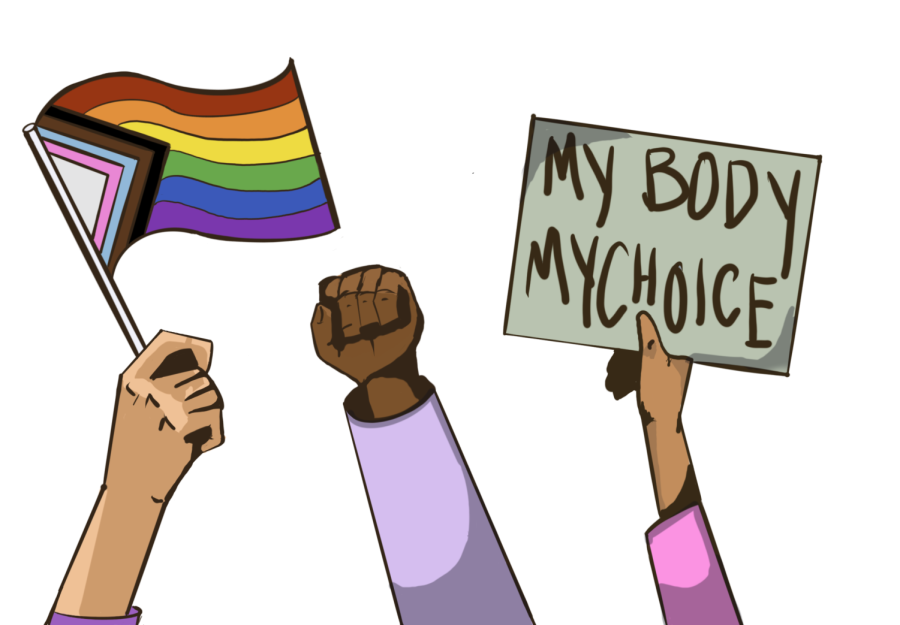FOCUS: In the wake of political turmoil following the overturning of Roe v. Wade, the youth advocates for change through social media
Following the wave of youth activism prompted by recent events, including the overturn of Roe V. Wade, climate change and police brutality, SCHS students engage in advocacy to shine a light on social issues.
Social science teacher Daniel Skapinsky noted the necessity for younger voices, especially since they will be the ones leading the world.
“It’s important for them to be involved because the problems of today will affect their future,” Skapinsky said.
In light of recent events, senior Joshua Anthony agrees that teenagers should use their voice to speak out about social issues.
“Being able to voice your opinions and learn more about stuff that’s happening in the world is important for anyone to do, and it’s good to develop that at a young age,” Anthony said.
Social science teacher Carol Schmale shared her perspective regarding students in the context of politics.
“I think they have enough experience to have an opinion,” Schmale said.
Agreeing with Schamle, Anthony believes that in view of the past incidents, protests and increased discussions surrounding politics during the last few years, students have been able to gain wisdom and experience. As a result, people should value their opinions.
“I think today, in today’s world with the events of the last few years, that kids have had to grow up and be mature and have a stake in solutions, today’s problems, society’s problems,” Anthony said.
According to research by Tisch College of Civic life and Action for the Climate Emergency, youth are more likely to use social media or sign petitions rather than physically and publicly speak up about various issues.
Additionally, Schamle has noticed some believe students have not been exposed to world issues and incidents, holding the belief that students do not have enough knowledge in politics and current matters to form valuable opinions. This can cause students to be reluctant to show interest in social activism as well as enforce a lack of confidence.
“There are also people who maybe don’t value their opinion as much because they are younger, and they feel like (they) dismiss their knowledge and experiences,” Schmale said.
Anthony also recognizes how some adults refuse to acknowledge the opinions of students as many adults do not understand students’ maturity level.
“There are times when people kind of brush off students because they’re just seen as too young or immature and don’t have enough experience in the real world to actually have a stance on these issues,” Anthony said.
Youth activism is continuing to rise in popularity as students and the younger generations realize how crucial their outlook is in creating a better future.
“Students have their own unique perspective,” Anthony said.


